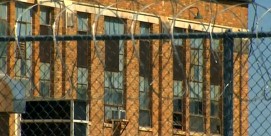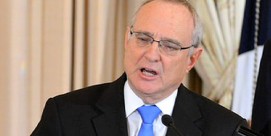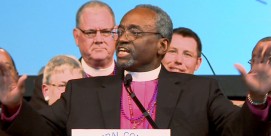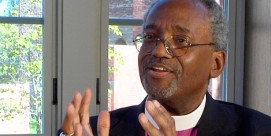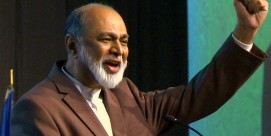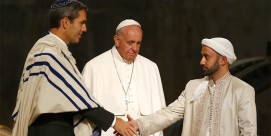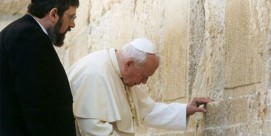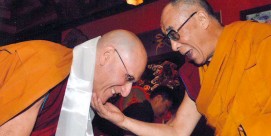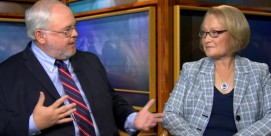Topic: Religious Leaders
“We have to make sure that our men and women who are coming out of prison have welcoming and affirming communities to come to, where they can be judged by the content of their character and not one mistake that they made in their past,” says Bishop Darren Ferguson, a former inmate and now pastor of Mt. Carmel Baptist Church in Far Rockaway, New York. More
“Freedom of conscience underlies all other rights. It’s why our Bill of Rights begins with the free exercise of religion, and without the freedom of conscience to live in accordance with your core values, all other rights are in peril,” says Rabbi David Saperstein. More
The work of the Episcopal Church, says its new presiding bishop, is “to find ways to be a bridge community that brings differing people together under the rubric of love.” (Curry is being installed as the new presiding bishop of the Episcopal Church at a service on Sunday, November 1, at Washington National Cathedral.) More
The new presiding bishop of the Episcopal Church talks about interfaith relations, the Anglican Communion, playing the violin, and more. More
This year’s conference focused on women in leadership, peace, and climate change. Imam Malik Mujahid elaborates on the issues the Parliament considered and the importance of supporting religious leaders “who believe in the humanity of the other.” More
The 1965 Second Vatican Council declaration on the relation of the church to non-Christian religions transformed church doctrine about Jews and other faiths. Nostra Aetate had its roots “in the shame and realizations of Christians after the Holocaust for what has been done to Jews,” according to Rev. Dennis McManus of Georgetown University. More
“The impact of Nostra Aetate over the last five decades has been extraordinary. Perhaps the greatest sign of this is that to young people, like undergraduates at my university, Nostra Aetate doesn’t seem extraordinary at all.” More
“The commitment of both Jews and Catholics to overcoming the past, and especially the warm personal relationships that have developed at the highest levels as well as locally, have made constructive engagement and honest exchange possible, even about difficult subjects.” More
Buddhism became a sanctuary for Dr. Barry Kerzin and led to his ordination as a monk. Now he serves as the Dalai Lama’s personal physician and combines his medical wisdom with love and compassion that translate into empathy. More
“The pope looks at the world in a different way. He looks at the world, he looks at economics, he looks at the environment, politics from the bottom up, from the outside in, and those aren’t Washington’s priorities or Washington’s ways. So we’ve had an alternative vision and a great example, and my hope is we listened, we learned, and we maybe even might follow his example,” says John Carr, director of Georgetown University’s Initiative on Catholic Social Thought and Public Life. More

